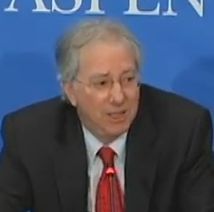 Everything you need to know about today’s coverage of Israel and the Mideast. Join the Israel Daily News Stream on Facebook.
Everything you need to know about today’s coverage of Israel and the Mideast. Join the Israel Daily News Stream on Facebook.
Today’s Top Stories
1. A bloody Ramadan came to an end in Syria with more death. According to opposition sources quoted by the LA Times, over 150 people were killed during the Eid al-Fitr holiday, which marks the end of Islam’s holy month.
Overall, more than 4,600 Syrians were killed during Ramadan, including “445 children and 342 women.”

2. Dennis Ross chided the Muslim Brotherhood’s credibility problem. He writes in a Washington Post op-ed:
Consider that Morsi denied sending Israeli President Shimon Peres a response to a note that Peres had written him after news of the correspondence provoked a backlash in the Brotherhood over Morsi having any such contact with Israel.
What makes this particularly noteworthy is that Peres’s office did not release Morsi’s letter publicly until after checking with the Egyptians to make sure it was okay to do so. The outrage among the Brotherhood led Egypt’s president to publicly deny a fact. Similarly, consider that the Brotherhood immediately blamed the Mossad, Israel’s intelligence organization, for the Sinai attack that killed the Egyptian soldiers — something that the Brotherhood knew to be untrue.
What conclusions should be drawn about an organization that cannot admit the truth? That insists on living in its own reality? If nothing else, it’s clear that the group the Brotherhood is wedded to its ideology and cannot admit anything that might call its basic philosophy into question.
3. A Popular Front for the Liberation of Palestine terror cell was busted, says the Jerusalem Post:
The cell, which initiated its activities around April and May 2012, primarily aimed to kidnap an IDF soldier or a civilian, who they planned to use in an attempted exchange for Palestinian prisoners, chiefly Ahmed Sa’adat, the PFLP’s secretary-general, according to Israel Radio.
Saadat masterminded the 2001 assassination of an Israeli cabinet minister. He was hastily tried in a PA kangaroo court and imprisoned in Jericho. Saadat’s incarceration was monitored by international observers; when they withdrew in 2006, the IDF seized Saadat. He’s currently serving 30 years in prison.
Iranian Atomic Urgency

• General Martin Dempsey: US, Israel view Iran threat with different ‘clocks’
Dempsey, the chairman of the US Joint Chiefs of Staff, said he conferred with his Israeli counterpart Benny Gantz on a regular, “bi-weekly” basis.
“We compare intelligence, we discuss regional implications. And we’ve admitted to each other that our clocks are turning at different rates,” he said.
“They are living with an existential concern that we are not living with.” . . .
“You can take two countries and interpret the same intelligence and come out with two different conclusions. I’d suggest to you that’s what’s really happening here,” he said.
• A Christian Science Monitor op-ed explains why Israel doesn’t appear concerned about Hezbollah, Syria and Gaza jumping into an Israeli-Iranian war. The “Axis of Resistance” is cracking.
This time, Hezbollah would be unable to replenish its stockpiles or rebuild destroyed villages so easily. Nasrallah’s guarantor in Damascus is on his last legs, while his primary bankrollers in Tehran have already cut funding to the group as a result of sanctions and diversion of resources to Syria.
Further, entering into a conflict with Israel would likely severely damage Nasrallah’s private militia, benefitting his sectarian rivals by stripping him of the only warranty of his political hegemony in Lebanon.
Next door in Syria, Assad faces similar concerns. A conflict with Israel could compromise his military advantage over an increasingly powerful rebel army . . .
Regardless of how the Iranian media may present Mr. Zahar, Hamas seems to be returning to its Sunni loyalties, cozying up to Egypt’s Muslim Brotherhood, and away from Iran.
• While the Iranian nuclear clock ticks, Peter Beinart says Obama shouldn’t make any pledges to cover Israel’s back without American public debate:
Americans deserve a real debate about war now, before they go to the polls. And I suspect that debate will help clarify for Israelis the degree to which a presidential promise of war can actually be relied upon.

